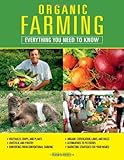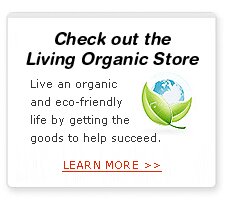Living Organic Online Store
Science and Technology of Organic Farming
Winner of a CHOICE Outstanding Academic Title Award for 2011! Organic farming is not only a philosophy, but also a well-researched science that combines soil fertility, plant pathology, entomology, and other biological and environmental sciences. Science and Technology of Organic Farming is a concise, readily applicable resource for understanding the scientific basis for organic farming and the technology required to achieve adequate yields through plant nutrition and protection. It provides the tools necessary to dispel hampering myths about organic farming so farmers – regardless of their experience – can strengthen their own growing practices. Emphasizes Foundations of Organic Farming – Composting, Cover Crops, & Farm ManuresAddressing relevant issues and concepts along with practical applications, chapters cover soil fertility and plant nutrition; individual plant requirements; liming; farm manures, green manures, and composts; mulching and tillage; and weed, insect, and disease control, as well as companion planting and storage. The text also includes more than 50 illustrations and a glossary with common technical and scientific terms used in conventional and organic agriculture. This valuable reference is ideal for farmers, agricultural advisers, and soil and plant scientists – in both academia and industry.
Related Products
Food for the Future
Big ideas made simple -- six books in an incredible new series that explains important scientific ideas more clearly than ever before. A safe supply of healthy food is a necessity for all societies, but seems harder than ever to achieve. This book examines modern farming methods, problems such as BSE, and potential solutions -- from organic to genetically modified foods. This stimulating new series uses an innovative mix of graphics, artwork, and photographs to explain and illuminate the most important scientific topics of the day. Unique in popular science guides, Essential Science uses bright, full-color images to make traditionally "difficult" subjects more accessible. Each title focuses on a scientific or technological topic that is currently provoking debate and is likely to have a widespread impact on our lives. Lively, readable text from top science writers ensures all readers -- from 14+ schoolchildren to academics -- gain a full understanding of the facts and related issues. Under the direction of renowned science writer John Gribbin, expert authors describe, in lively, jargon-free text, the principles and discoveries behind each subject, summarize what is currently known, and predict future issues and trends.
Organic Farming: Everything You Need to Know
Going organic may be a clear way of getting back to basics—and getting away from the havoc chemicals can wreak on our health and our environment—but the basics themselves may not be so clear. How to begin? What kind of fertilizer and feed are allowed? Is there natural pest management? What does certification entail? And is this the way to go? This book covers the basics and then some. Whether you’re thinking of starting an organic farm or making the transition to organics, whether you’re growing crops or raising animals, you’ll find everything you need to know in these pages—from getting started to developing a marketing strategy. A list of resources also points the way to other books, websites, and organizations focusing on every aspect of organic farming, including state standards and more information.
Organic Vegetable Production: A Complete Guide
"Organic Vegetable Production" provides an invaluable, practical guide to the production of organic vegetables across a range of organic farming systems in temperate areas. The book covers all aspects of production, including crop choice, fertility building, and weed, pest, and disease management within a framework of rotation design and business planning. The specific needs of a range of commonly grown vegetable crops are discussed in detail.




